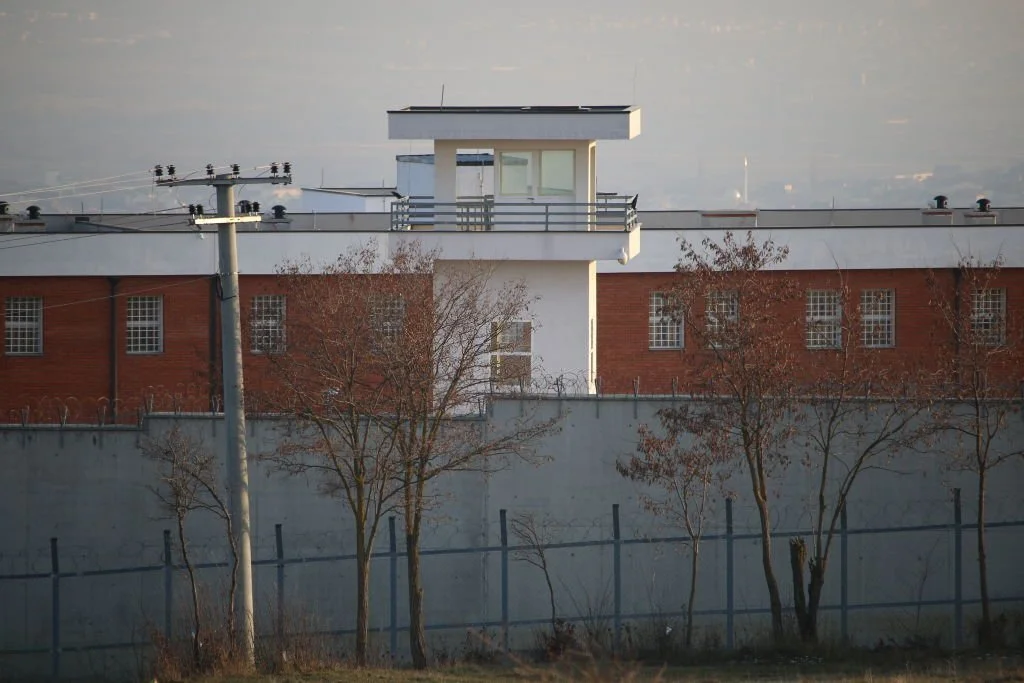European Central: Denmark Rents Prison Cells in Kosovo To Ease Overcrowding
Anadolu Agency
Due to an increase in incarcerations, Denmark has found an unusual solution to deal with a lack of space in its prisons. Instead of building more prisons, Denmark will be renting prison cells from Kosovo starting in 2013. This is beneficial for both countries. Denmark will have a temporary solution for holding prisoners until it is able to expand its prison system meanwhile the Kosovar government is able to bring in revenue from the country from another source instead of taxing its citizens more. In exchange for the use of 300 prison cells Kosovo will be paid 15 million euros each year. Danish prisoners that will be sent to Kosovo will be foreign nationals who are already scheduled to be deported from Denmark upon their release.
The specific plan is for Denmark to have access to the Gjilan entire prison in Kosovo, which fits the size requirements Denmark needs. The prison will be run by a Danish warden with the assistance of an Albanian warden and will employee local workers. As Denmark will have control of the prison, it will be easy to run the prison according to Danish laws and standards. Denmark has already committed to a five-year lease of the prison and has reserved the right to automatically renew the lease for an additional five years. It is hard to say whether this need for additional prison space is because of the increase in Denmark’s population, or if crime has slowly been increasing within the nation.
While the Kosovar government is enthusiastic about this arrangement with Denmark there are some concerns from NGOs about Kosovo’s prison system. While the Netherlands is looking for additional space for prisoners, critics of the arrangement argue that Kosovo’s prison system is already nearing capacity itself. Based on data from the University of London's World Prison Brief, the Kosovar prison system is at 97 percent capacity with 1,642 prisoners. Fatmira Haliti, who works with the Kosovo Rehabilitation Center for Torture Victims points out that Kosovo prisons are not up to Danish standards and is concerned that Denmark renting out the entire Gjilan prison will overcrowd other Kosovar prisons. If this were to occur, Kosovo would be sacrificing the quality of its own prison system and potentially the safety of its prisoners in order to help accommodate Danish prisoners.
This arrangement may seem unusual, but it is not the first of its kind. Prior to Denmark renting cells from Kosovo, Norway and Belgium rented cells from the Netherlands. Similar to Denmark, Belgium had some oversight to ensure that the prisoners were treated in accordance with Belgian laws. In Norway’s case it was necessary to rent prison cells so they could carry out renovations and to expand capacity in order to not have an issue with overcrowding. However, it was a bit challenging as Norwegians do not speak Dutch like a large portion of Belgians who live in the Flemish region of Belgium. It is unclear how the language barrier will me overcome in the case of the Danish prisoners who will finish their sentences in Kosovo as they are foreign nationals. It also seems likely that Denmark is renting cells from Kosovo in comparison to other countries in order to save money. Belgium paid 30 million euros a year to send 500 million prisoners when it created its arrangement with the Netherlands in 2009.
Denmark will also help develop green energy in Kosovo which is essential. Energy produced in Kosovo primarily comes from coal only meets 60 percent of the daily demand in the country which has created a difficult situation. In addition, the Danish government plans to help Kosovo promote rule of law, democracy, and human rights. Between all of these objectives the Danish government will spend up to 30 million euros over the five years of the contract if they are approved by the appropriate bodies in Denmark. Up to 27,500,000 euros will be spent on the development of green energy and the remaining 2,500,000 euros would be spent on the other objectives. While this is generous from Denmark, it also still seems to benefit Denmark in the end as it is cheaper than if it were to rent prison cells in neighboring countries, which all have some of the highest costs of living in the world. Fortunately, Kosovo also stands to receive money from the European Union in order to help develop district heating. It is expected to bring district heating to 1.2 million Kosovars. This is a part of the Economic and Investment Plan for the Western Balkans and the EU Green Agenda and has a value of 160 million euros.
As Kosovo struggles with gaining recognition as a nation completely independent of Serbia, the arrangement with Denmark and the investments it is receiving from Denmark and the EU may help the country move forward. The main concern is whether or not Kosovo’s prisons will become overcrowded as a result. However, Denmark seems dedicated to ensuring that Kosovo benefits from the arrangement as well and is likely to help come up with a solution if this does become the case.

